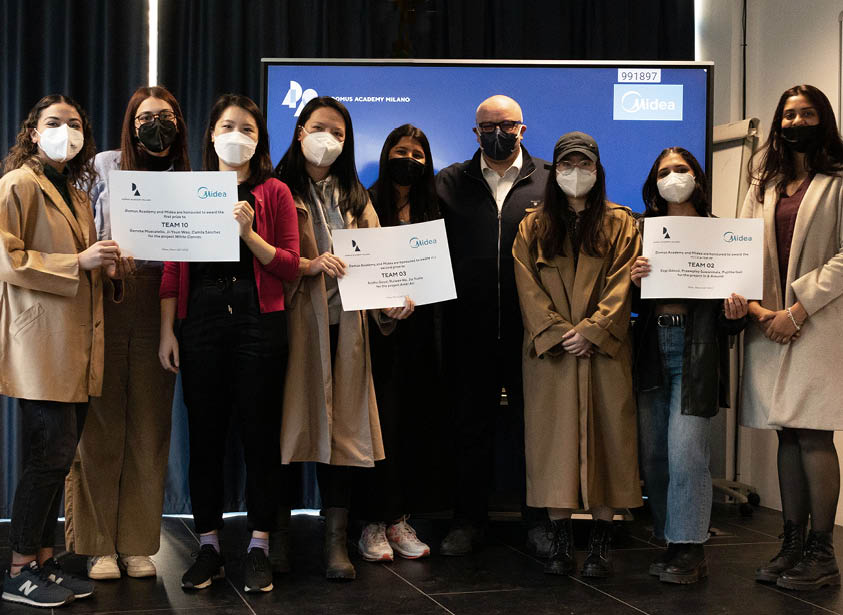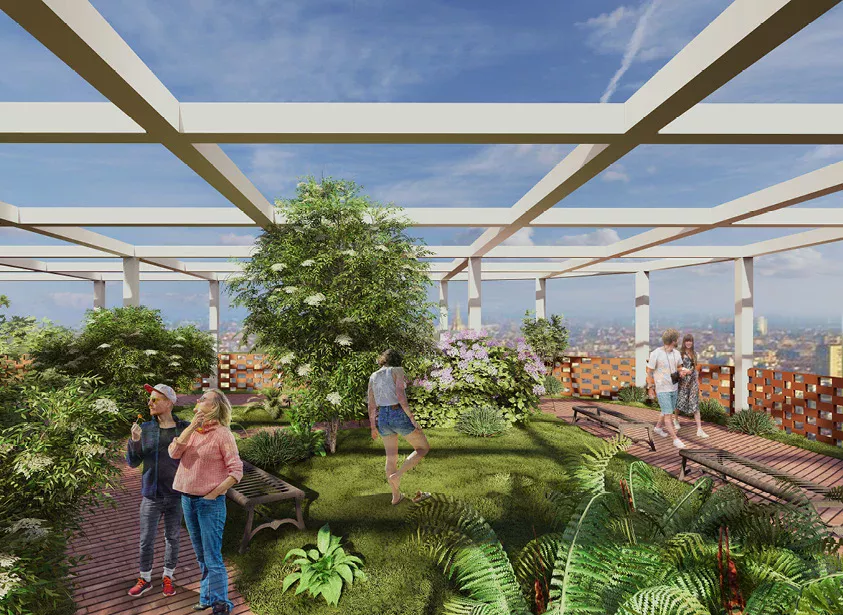Midea Award
Midea awarded three projects designed by Domus Academy students during a successful workshop conducted by the company in collaboration with Domus Academy.
Midea challenged the students to design an original Midea Smart Home User Experience for the year 2030 that integrates solutions for the climate control in domestic environments.

Midea awarded three projects designed by Domus Academy students during a successful workshop conducted by the company in collaboration with Domus Academy.
Midea challenged the students to design an original Midea Smart Home User Experience for the year 2030 that integrates solutions for the climate control in domestic environments.
Students focused on going beyond the mere functional nature typical of existing mainstream solutions, to create a progressive relational platform, capable of innovatively connecting not only people and devices, but also people to each other, within and beyond the home environment.
Ezgi Göncü, Praewploy Suwanmala and Pujitha Gali, who gained the third prize, designed ‘In & Around’, a progressive smart home platform that seamlessly orchestrates the silent but effective work of diverse connected appliances, each performing a significant task to ensure that the health of everyone in the home is always well taken care of.
Anshu Goyal, Ruiwen He and Jia Yuxia received the second prize, thanks to the project ‘Ambi Air’. The group envisioned an Air Conditioner with an original, versatile design that, given its articulated arms and integrated projector, expands its traditional role to enable holistic experiences in the home, capable of transporting new generations of users into alternative meta-realities.
The first prize has been given to Gemma Muscatello, Ji-Youn Woo and Camila Sánchez, who designed ‘White Canvas’, an Air Conditioner designed to integrate into interior architecture, while presenting a distinctive identity, that allows people to travel through time, proactively and surprisingly revealing the most significant traces of those who have had memorable experiences in the same shared spaces.











